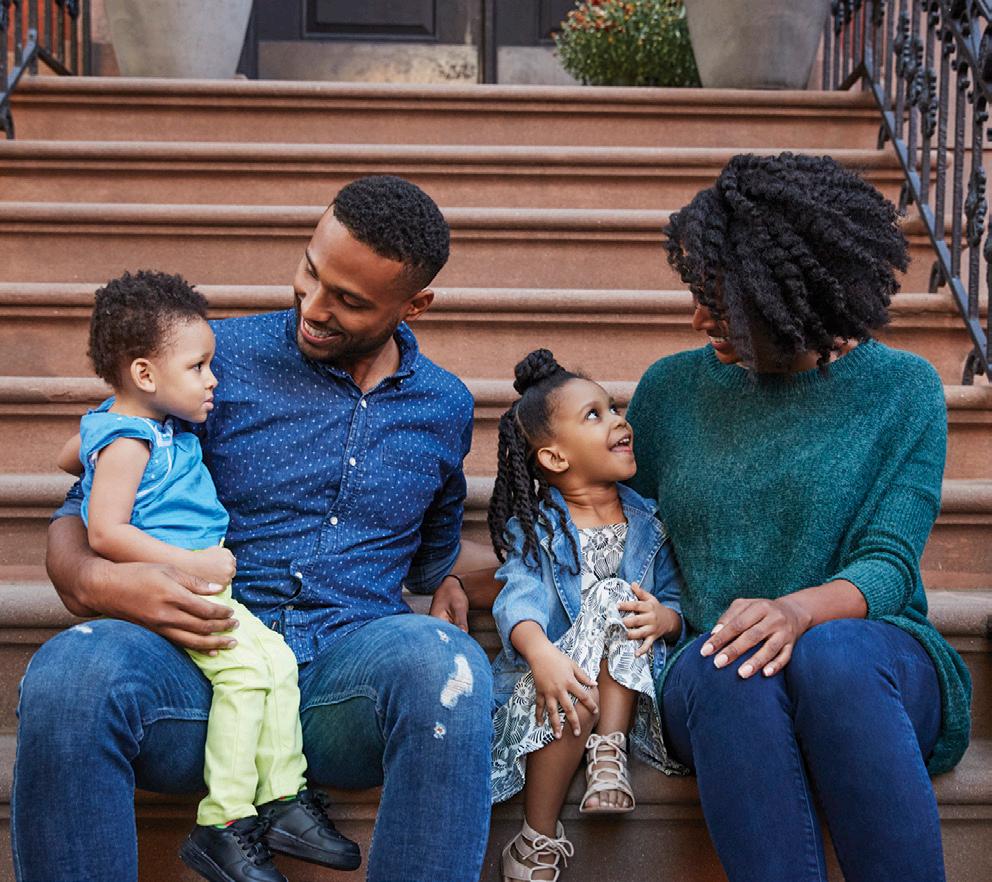Myeloma Today
A publication of the International Myeloma Foundation





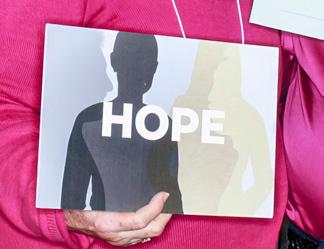


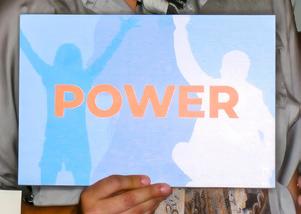
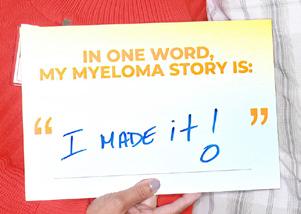
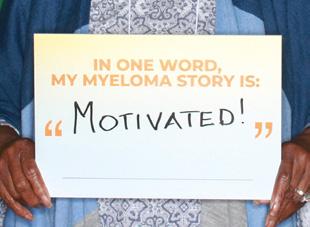
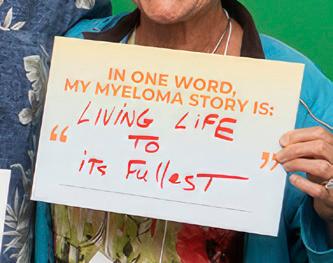

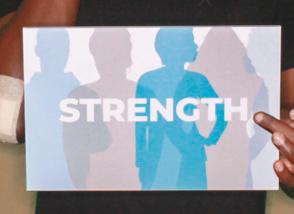
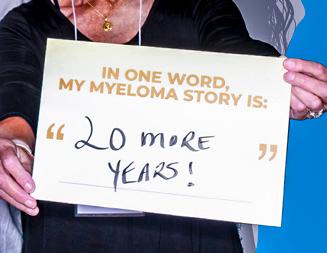
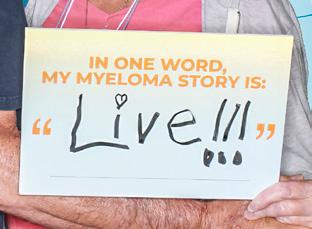

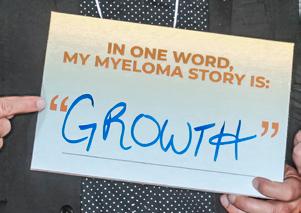
2023 Myeloma ACTION Month global campaign reached more than 41 million people across 45 countries!
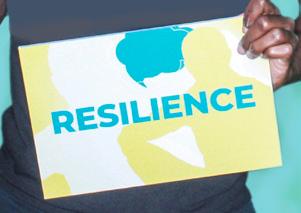
THIS EDITION: Members
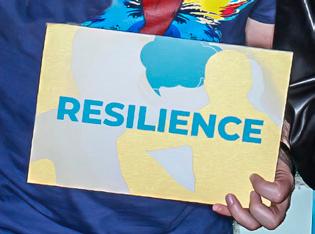
The IMF funds three promising myeloma research projects for better myeloma treatment, management, prevention, and a cure PAGE 3
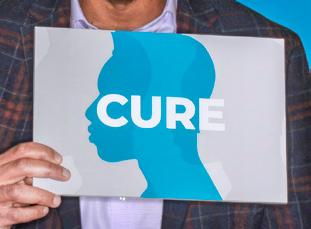
ALSO

The IMF is fostering greater diversity in doctors working in myeloma by creating a novel initiative for African American medical students PAGE 5
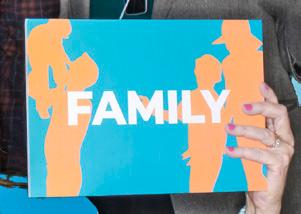

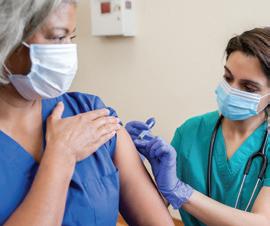
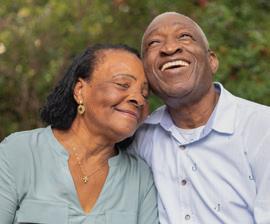



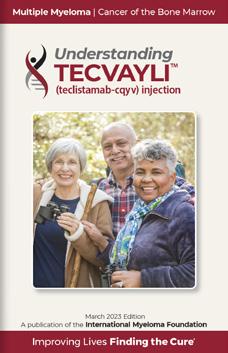
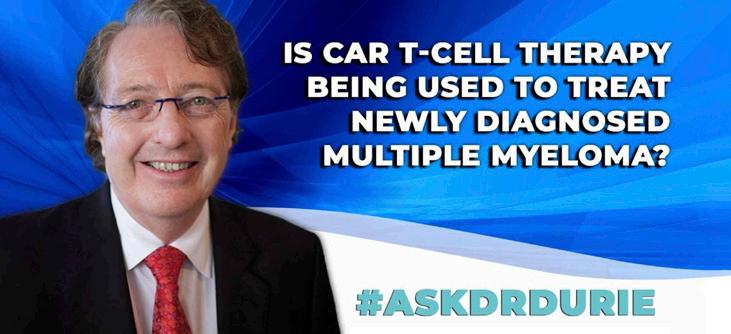
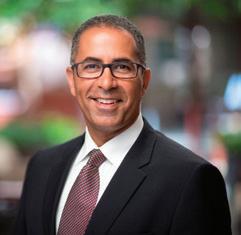
The IMF supports important myeloma research through a range of innovative programs with the aim of improving patient outcomes and bringing us closer to fulfilling our mission – a cure. In 1994, the IMF established the Brian D. Novis Research Grants program, named in memory of our co-founder, to fund the most promising projects by talented investigators from leading institutions around the world. Since then, the IMF has funded well over 150 myeloma research projects. The Brian D. Novis Research Grants are made possible by the proceeds from fundraising activities by members of the IMF.

The IMF’s Senior Grants are funded at $80,000 and are awarded to established investigators with a track record in myeloma or related disorders. Dr. Boaz Tirosh (Case Western Reserve University, Cleveland, OH) is the recipient of the 2023 Senior Grant award. His research project is being funded by the Miracles for Myeloma event.
In AL amyloidosis, plasma cells in the bone marrow can produce toxic pieces of antibodies that can seriously damage organs, including the heart. Up to 30% of patients with advanced heart amyloidosis die within the first year of diagnosis. Dr. Edwards aims to explain how light chains cause heart damage at a molecular level. Her research project is funded by Kent Oliver’s Laughs 4 Life, a comedy event that has become a summer highlight in the Oliver Family hometown of Hattiesburg, MS.
Dr. Julia Frede (Dana-Farber Cancer Institute, Boston, MA) is working to define cell states underlying treatment resistance in myeloma. New treatments have extended the lives of many patients, but myeloma remains incurable. In some patients, changes to the myeloma cells can cause a treatment to stop working and allow the disease to return.
Dr. Frede is studying the mechanisms underlying these changes in myeloma cells in order to understand treatment resistance and predict response. The goal of this research is to develop new treatment approaches that can prevent treatment resistance in patients with myeloma. Dr. Frede’s research project is being funded by the Schleicher’s
Dr. Tirosh is studying novel adjuvants to proteasome inhibitors, a standard drug therapy for myeloma, which kill myeloma by provoking cellular stress conditions. However, resistance to the stress eventually develops, and myeloma relapses. Dr. Tirosh and colleagues have identified a unified pathway that endows myeloma with adaptation to proteasome inhibition, and they are developing a first-of-a-kind drug compound to treat myeloma.
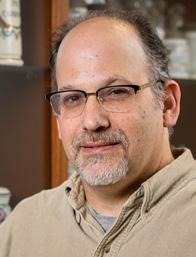

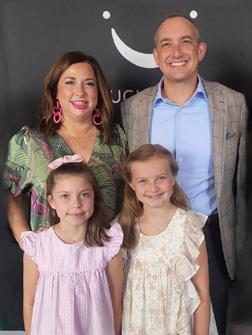

The IMF’s Junior Grant Awards are funded at $50,000 each and go to investigators who have completed postdoctoral studies or clinical fellowships. Two 2023 Junior Grants have been awarded.
Dr. Camille Edwards (Boston University, Boston, MA) is working to define a molecular signature of cardiotoxicity in systemic immunoglobulin light chain (AL) amyloidosis.
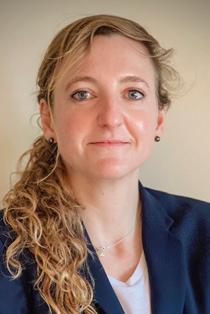
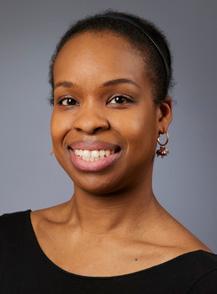
The IMF is deeply grateful to all the individuals whose support of the Brian D. Novis Research Grants program makes it possible for the IMF to fund promising projects for better myeloma treatment, management, prevention, and ultimately a cure.
 Chief Scientific Officer
Chief Scientific Officer

Founded in 1990, the IMF is the first and largest organization focusing specifically on myeloma. The IMF’s reach extends to more than 525,000 members in 140 countries worldwide. Our mission is to improve the quality of life of myeloma patients while working toward prevention and a cure. The IMF pursues this through our four founding principles: Research, Education, Support, and Advocacy.
These principles are not only interrelated; they are inseparable. The IMF was co-founded by Brian D. Novis, a myeloma patient who recognized the importance of building bridges between all the stakeholders in the world of myeloma: creating connections among patients, between patients and healthcare professionals, and between community doctors and myeloma experts. My personal journey with myeloma began in 1995, when I was diagnosed with stage 3 disease at the age of 25, approximately 40 years earlier than the average myeloma diagnosis. I joined a local myeloma support group, which was losing a member per month in those days, picked up the baton from the patients who helped educate me, and began to “pay it forward.” I learned to be my own best advocate and to advocate on behalf of other patients, too. Later, I joined the IMF’s Board of Directors, and today I serve as the IMF President & CEO.
I am part of a growing number of patients who are living longer and more productive lives because of advancements made through global collaborative myeloma research, which has brought real progress and much excitement with each breakthrough. The IMF’s myeloma education program helps patients and care partners to improve their health literacy through numerous educational venues, both in-person and remotely. Patients can access information more easily to help inform their decision-making in a timely manner, wherever they may be in their myeloma journey. Truly, “Knowledge Is Power.”
Education of healthcare professionals – doctors, nurses, pharmacists – serves to foster, develop, maintain, and increase their understanding of myeloma. Research advocacy represents the collective patient voice in an effort to improve the overall
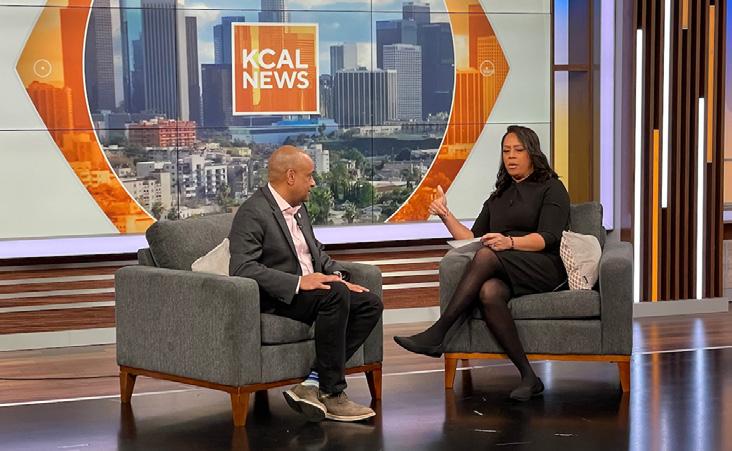
outcome for patients. The IMF educates clinicians, key opinion leaders, and industry partners about the urgency of moving the field forward with patient-centric clinical trials, more and better treatment options, and inclusive health equity.
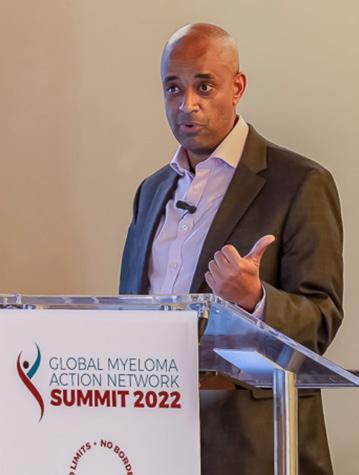
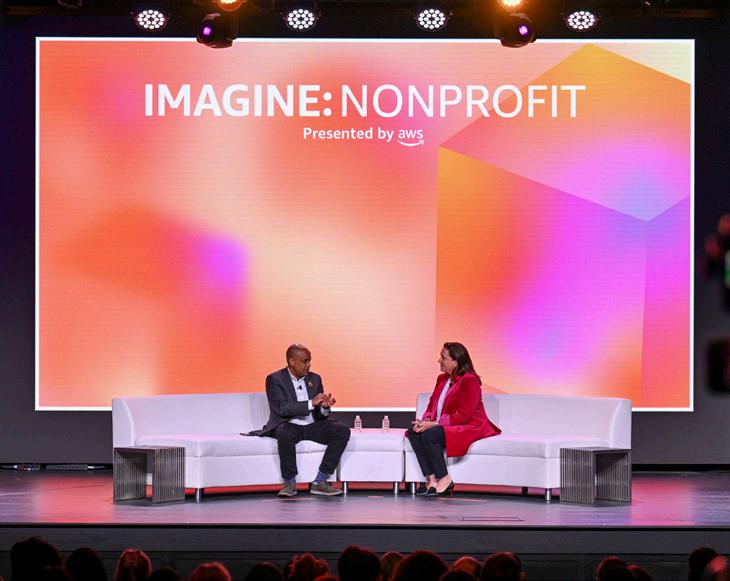
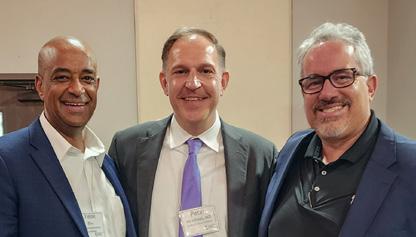
“Time-to-hope” is how I describe the period between the patient’s myeloma diagnosis and when the patient begins to feel empowered to live with myeloma. Myeloma education helps patients to arrive at the place of hope. Living with myeloma is about finding the right balance between treatment and outcome; between outcome and side-effects; between knowing when to complain and when to tough it out; between short-term and long-term care options; between when to consider clinical trials, and when to stick with the standard-ofcare therapy.
As members of the greater myeloma community, we must understand the present challenges and be energized by the possibility of the future. Living with myeloma is not about an absence of fear, but rather the mastery of available information that supports you in planning for tomorrow less fearfully and more hopefully. Most importantly, as cancer patients, we should all remember that while avoiding to die, we must not forget to live!
Yelak Biru Myeloma Patient IMF President & CEO
Myeloma may well be the cancer with the greatest disparity in the African American community. The disease is twice as common in African Americans, while overall survival is half that of White patients. The reasons for this are complex and include but are not limited to delayed diagnosis, lack of access to key therapies, mistrust of the medical system, and systemic racism. Another key reason for the lack of health equity in myeloma is the lack of diversity in doctors working in the field of oncology, and especially in myeloma. We know that when a patient’s healthcare team includes a member whose background is similar to the patient, better outcomes are achieved.
At present, very few myeloma experts are individuals of African descent. To make a significant change, it is essential to capture the interest and to nurture the proficiency in myeloma in the African American medical community. Exposing African American medical students to the disparity in myeloma may translate into greater interest in the disease and may attract them to a career in myeloma. That is why the IMF has formed a partnership with the W. Montague Cobb National Medical Association (NMA) Health Institute (Cobb Institute). Founded in 2004, the Cobb Institute is named in honor of the late Dr. William Montague Cobb, who influenced countless graduates of Howard University School of Medicine, including Dr. Randall C. Morgan Jr., an orthopedic surgeon and Founding Executive Director of the Cobb Institute.
Together, we have created the Medical Student Scholars for Health Equity in Myeloma program, a novel mentorship initiative for African American medical students. Launched in December 2022, the program captured the attention of many applicants enrolled in the Cobb Scholars program, and the 12 most promising candidates were chosen by a selection committee. Each of the 12 mentees, some of whom are enrolled in Historically Black Colleges and Universities, is matched with a myeloma expert who is mentoring them in the development of a myeloma-specific project on health disparities. In July 2023, the mentors and mentees will gather at the annual meeting of the NMA, and each student scholar will present their work at a special symposium.
The Medical Student Scholars for Health Equity in Myeloma partnership is a natural fit for the IMF’s M-Power program, the nationwide initiative by the IMF to improve the short-term and long-term outcomes of patients with myeloma in the African American community. As an African American myeloma doctor, this is both a personal and professional mission for me. Part of my myeloma story is to find solutions to this health inequity by leading the M-Power program, engaging with the community
to raise awareness of myeloma, educating primary care providers to improve the early and accurate diagnosis of myeloma, and facilitating enhanced access to culturally sensitive care for all myeloma patients.

The IMF’s M-Power program is both national and local. Resources are provided for all, with focus on key regions where the incidence of myeloma is high and the disparity large. Community engagement is conducted at multiple levels. Through the M-Power program, the IMF highlights the importance of healthcare access and patient education for improving diagnosis, management, and survival of myeloma patients in underserved and understudied populations.
The IMF is dedicated to improving the quality of life of ALL myeloma patients while working toward prevention and a cure. The Medical Student Scholars for Health Equity in Myeloma program is a novel step forward in fulfilling our mission. Mentorship of African American medical students will give them the tools necessary to better understand myeloma and its significance in the African American community, and help develop their expertise in addressing health disparities.
For more than 30 years, the IMF has built nationwide and global networks of relationships that help us reach patients with myeloma, healthcare providers in the community and in academia, and scientific and clinical investigators making great strides in myeloma research. We hope that the participants in the Medical Student Scholars for Health Equity in Myeloma mentorships will choose to continue to work in myeloma, increasing the pool of doctors from the African American community who will care for myeloma patients and serve as ambassadors for myeloma and for the IMF. MT
Stay tuned for Dr. Mikhael’s next #WHEREISDRJOE column and contact the IMF InfoLine with your myeloma-related questions and concerns. Phone lines are open 9 a.m. to 4 p.m. (Pacific) Monday through Friday at 1.800.452.CURE in the U.S. and Canada and 1.818.487.7455 worldwide. To submit your query electronically, email InfoLine@myeloma.org .

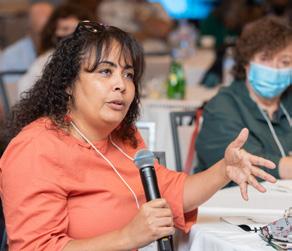
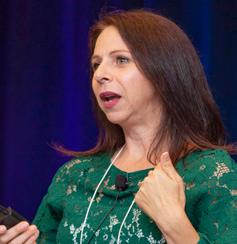
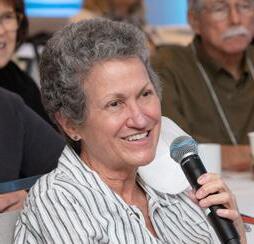
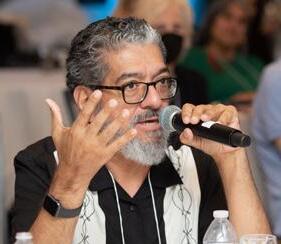

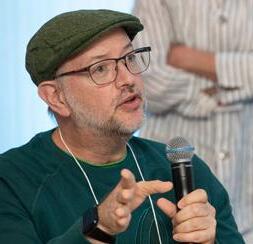
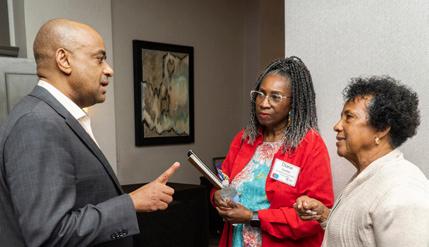

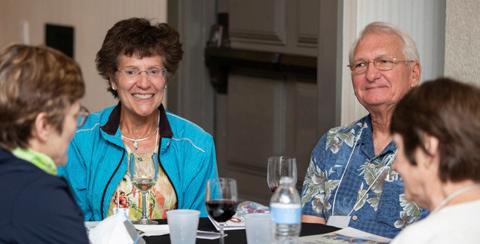
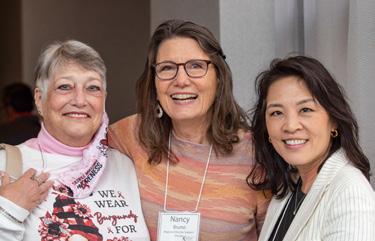
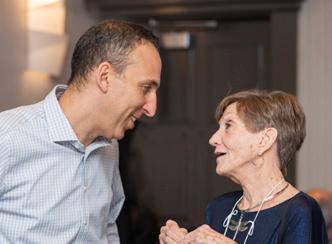 By Dr. Brian G.M. Durie IMF Chairman & Chief Scientific Officer
By Dr. Brian G.M. Durie IMF Chairman & Chief Scientific Officer

In February 2020, as the COVID-19 pandemic began to unfold, the IMF was prompted to reformat its signature Patient & Family Seminar (PFS) program by holding online meetings instead. This would turn out to be a three-year period of adjustment to the virtual medium. The IMF’s educational webinars were highly successful and well-attended.
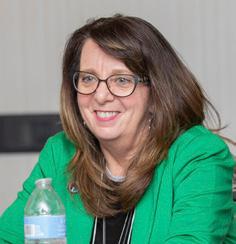
In March 2023, the IMF was able to resume its in-person PFS program with a meeting in Boca Raton, FL. After so many webinars over the course of the pandemic, being face-to-face once again brought much excitement. It was an emotional sight to behold, old friends finally able to reconnect in person. Myeloma patients from the area were joined by members of several IMF-affiliated Florida support groups, as well as patients who traveled from as far as Canada.
After a warm welcome from the IMF, the first educational session by Dr. James Hoffman (Sylvester Comprehensive Cancer Center, Miami, FL) led into a Q&A session co-led by the two of us. Surprisingly, there were no significant questions regarding COVID-19. Dr. Hoffman and I fielded questions about the role of autologous stem cell transplants, high-risk myeloma, maintenance therapy, CAR T-cell therapy, and bispecific monoclonal antibodies. The Q&A lasted for about an hour and a half with several other topics covered (and would have continued throughout the evening!).
After a break that followed the first session, three well-received presentations took place: “Taking the Reins of Care” by Beth Faiman of the IMF Nurse Leadership Board, “Disparities in Myeloma” by IMF Chief Medical Officer Dr. Joseph Mikhael, and “Making a Positive Impact” by IMF Associate Director of Distinguished Events Ilana Kenville. Beth discussed the “shared decision-making process,” which was met with tremendous interest from the attendees, as it is so important to align treatment options with what works for patients and families. Dr. Mikhael pointed out how distressing it is when access to testing and treatment are limited. Efforts are being made to address the complex issues involved. Ilana touched upon the activities led by patients and families who want to “give back” and help others, and how we can all make a difference by helping the less fortunate.
IMF President & CEO Yelak Biru opened the day’s program with a presentation about the IMF and our mission to improve the quality of life of myeloma patients while working toward prevention and a cure. Then, I began the “Myeloma 101: What Patients Need to Know” session by bringing everyone up-to-speed on newly diagnosed myeloma, including the importance of early diagnosis, which tests are needed, which treatment options are available in 2023, and more.
Dr. Peter Voorhees (Atrium Health Levine Cancer Institute, Charlotte, NC) presented a thorough discussion of frontline therapy. The “triplet” (3-drug) regimen with Velcade® (bortezomib) +
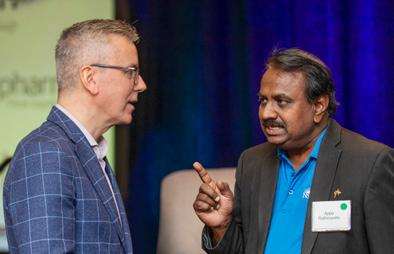
Revlimid® (lenalidomide) + dexamethasone (VRd) is considered as the standard-of-care (SOC) for newly diagnosed myeloma, and it offers excellent outcomes for most patients. VRd can be further enhanced by the addition of Darzalex® (daratumumab) or Sarclisa® (isatuximab-irfc) to create a “quadruplet” (4-drug) regimen.
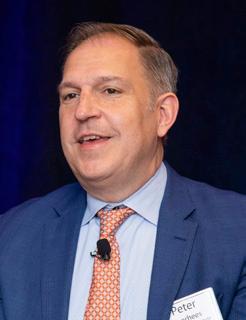
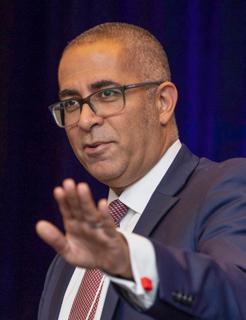

Before the first break of the day, IMF Vice President, Support Groups Robin Tuohy demonstrated how to navigate the IMF website to access vital information. After the break, participants were in for a wonderful surprise.
Dr. Sigurður Kristinsson (University of Iceland, Reykjavík) had traveled to Boca Raton to give the 5-year update on the Black Swan Research Initiative® (BSRI®) iStopMM (Iceland Screens, Treats, or Prevents Multiple Myeloma) research project in person, and a video was shown about the beginnings of iStopMM in 2016. More than 80,000 people in Iceland signed up to be screened for M-protein in the blood and to take part in the largest population-based study ever conducted. Approximately 4,000 individuals were detected to have monoclonal gammopathy of undetermined significance (MGUS) or smoldering multiple myeloma (SMM), as well as a few with active myeloma. While it will take some time to know for certain, it seems that screening will be a way to limit disease progression early on – and perhaps even cure myeloma. The audience understood the significance of this approach to myeloma care, and really loved hearing about it directly from Dr. Kristinsson.
Dr. Nikhil Munshi (Harvard Medical School and Dana-Farber Cancer Institute, Boston, MA) discussed new FDA-approved therapies as well as ongoing clinical trials. He explained data on CAR T-cell therapies and bisp ecific antibodies. Fortunately, access to CAR T therapies is improving. An expert opinion can help myeloma patients decide if a clinical trial offers their best option for relapse management.
In closing, the 2023 IMF Patient & Family Seminar in Boca Raton was a very successful event, and the excitement about meeting in person was still evident at the end of the meeting. We are all looking forward to a broad return to the in-person program of IMF Patient & Family Seminars! MT
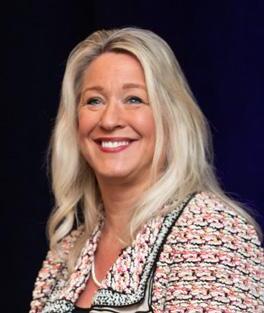

Boca Raton | March 2023 IMF PATIENT & FAMILY SEMINAR View the videos and slides from this event and learn from the myeloma experts Go to mmsm.link/3MFFi7L

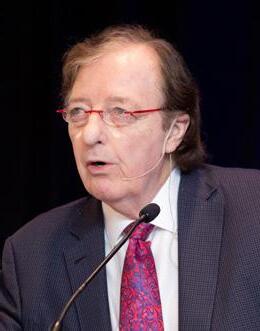
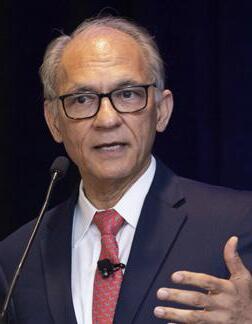
Please turn to the back cover of Myeloma Today for the calendar of upcoming Patient & Family Seminar (PFS) and Regional Community Workshop (RCW) events. These IMF educational meetings present an opportunity to interact with myeloma experts and to learn the latest about myeloma, its treatment options at diagnosis and relapse, and key data from research studies.

Each year, the IMF leads the Myeloma ACTION Month
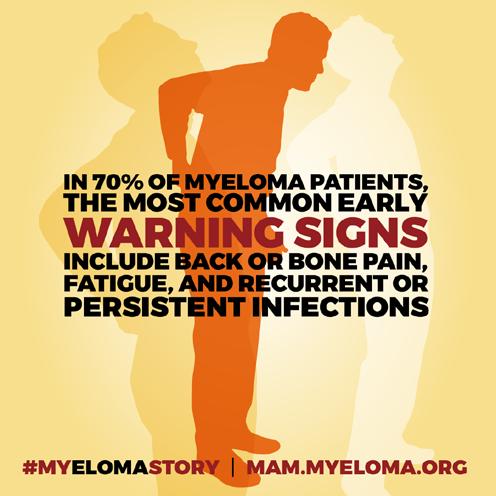
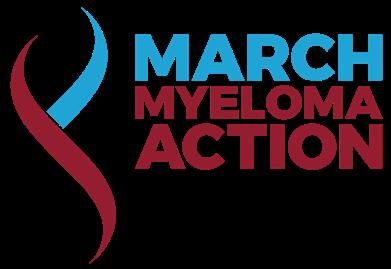
(MAM) initiative to encourage individuals and groups to take actions that make a positive impact on the myeloma community. Throughout the month of March 2023, the IMF invited individuals and groups to answer the question: “What is your #MYelomaSTORY?”
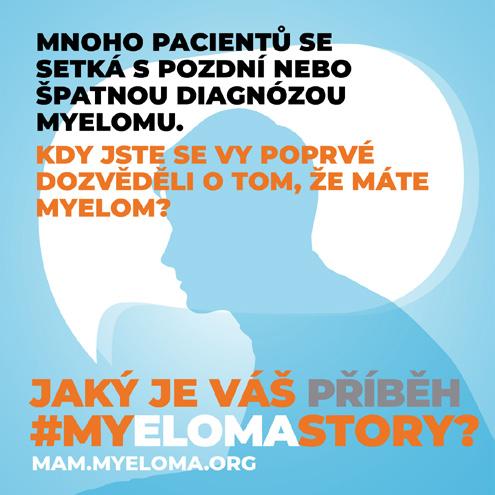
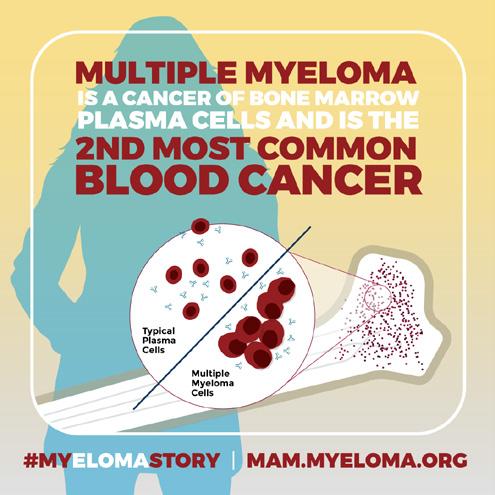
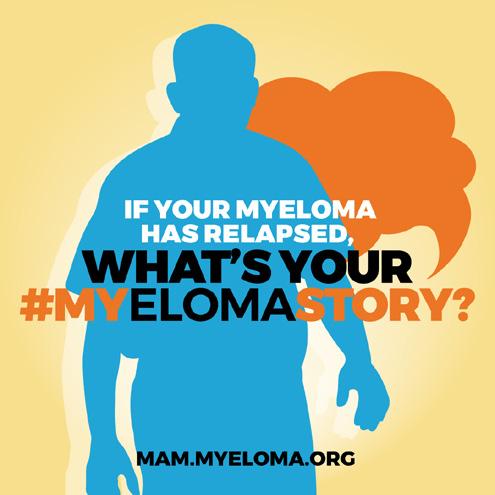
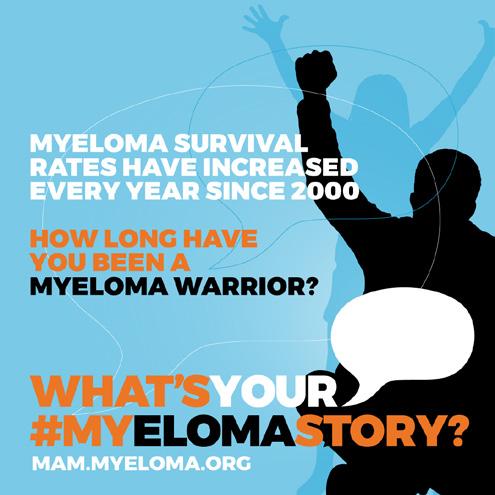
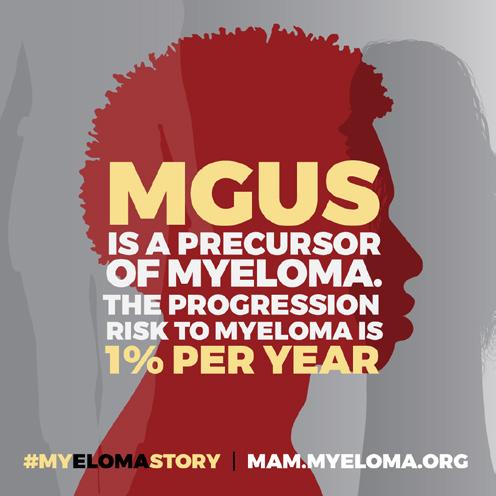
The #MYelomaSTORY campaign evoked empathy and fostered hope among members of the myeloma community. It provided a social media platform for people to engage with and a place to tell their stories. Patients, care partners, family members, medical experts, and others shared their myeloma experiences.
IMF President & CEO and 27-year myeloma survivor Yelak Biru shared his journey: “As a young immigrant from Ethiopia, a new
husband, and a graduate student, I learned I had myeloma at age 25. While the road of living with myeloma has not always been smooth, it has been paved with many valuable lessons along the way. One of those lessons is that we must learn to live with, and not for, myeloma.”
IMF Chief Medical Officer Dr. Joseph Mikhael related: “As an internal medicine resident, my mind was fascinated by the science of myeloma and my heart was touched by my patients suffering from the disease. My decision to pursue a career as a myeloma doctor was solidified when I was called to the Emergency Department to attend to a 26-year-old man who had a highly unusual X-ray filled with holes – he turned out to be one of my friends from high school. Twenty-six years later, he is still fighting myeloma and has been an inspiration to me and so many others.”
Dr. Mikhael is deeply involved with the IMF’s M-Power Diversity Initiative that aims to break down barriers for African American patients by partnering with communities across the country: “As an African American myeloma doctor, this is both a personal and professional mission for me. Part of my myeloma story is to find

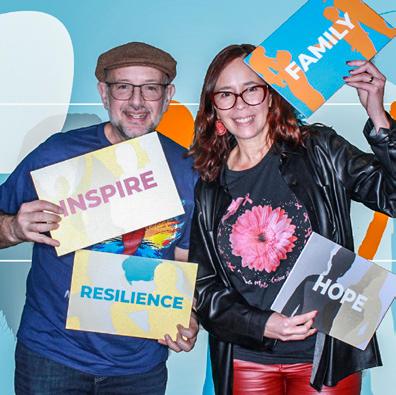
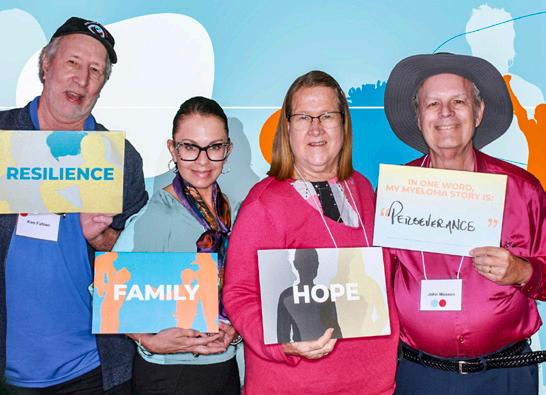
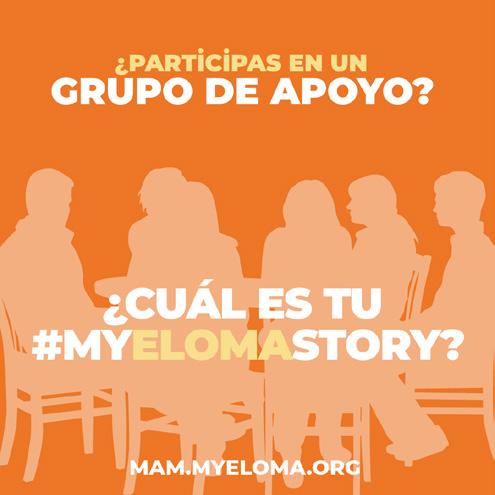
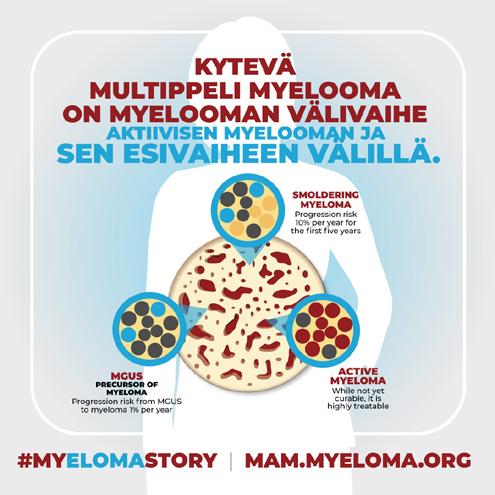


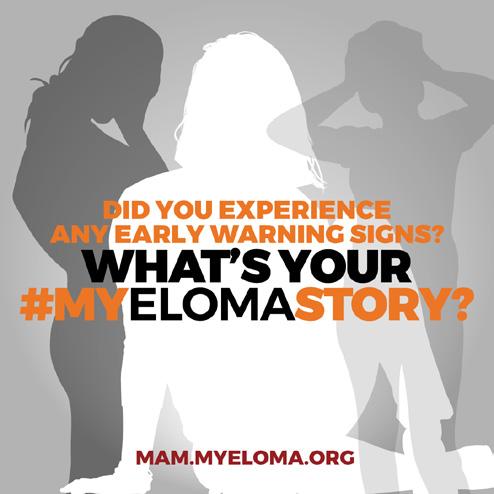
solutions to this health inequity by leading the M-Power program, engaging with the community to raise awareness of myeloma, educating primary care providers to improve the early and accurate diagnosis of myeloma, and facilitating hematologists and oncologists in giving enhanced access and culturally sensitive care to all myeloma patients.” To hear Dr. Mikhael talk about living well with myeloma, watch his Facebook LIVE .
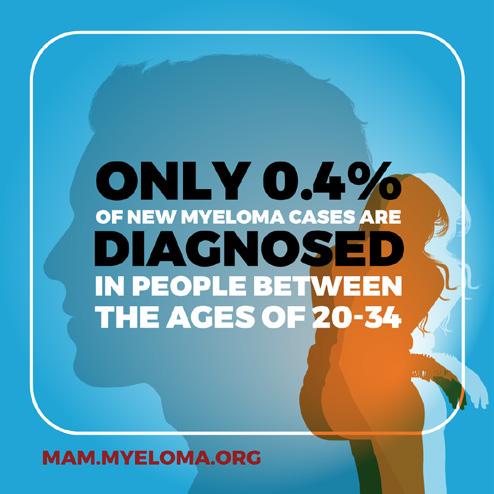
In another Facebook LIVE , IMF Nurse Leadership Board member Beth Faiman shared her experience of caring for myeloma patients: “I observed the struggles that patients with myeloma underwent. I was really passionate about finding control of symptoms, whether it’s a pain medicine or just, you know, being a comforting ear when patients got really sick.” Beth’s involvement in clinical trials became her impetus to learn more about laboratory
(continues on next page)
with over 41 million people reached across 45 countries!Myeloma patients, care partners, and family members answer the question: “Tell us in one word, what is your myeloma story?”
MYELOMA ACTION MONTH – CONTINUED FROM PAGE 9 research, the science behind protocol development, and how to interpret studies.

President of IMF Latin America & President of Instituto Espaco de Vida Christine Battistini recounted how her myeloma story began when her mother was diagnosed with myeloma in Brazil in 1997: “The IMF was there from day one to support and guide us, as well as to empower and bring us hope for the future. MAM campaigns have helped raise awareness of myeloma throughout the world, and I am proud to be part of this mission.”
IMF Director of the Global Myeloma Action Network (GMAN) and European & Middle Eastern Patient Programs Serdar Erdoğan shared how he began his work with myeloma communities: “First, I began to volunteer for the Cancer Survivors Association that supported children with cancer in Istanbul, Türkiye. Two years later, we recorded the first video with beloved myeloma patient and advocate Ayşegül, to give hope to the myeloma community in Türkiye. For the last 10 years, my purpose in life has been to be the ‘glue’ between people in need and the projects that can improve their quality of life. My mission started with children and has grown to becoming involved with myeloma communities.”
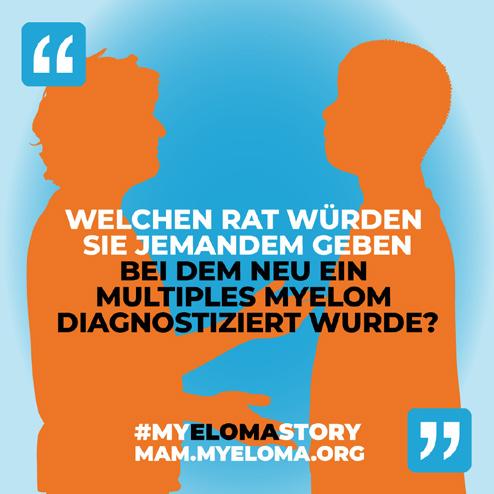
IMF Support Group Leader Tiffany Williams is a retired pediatric nurse practitioner, a myeloma health equity and disparities
advocate, and a 9-year myeloma survivor. In a blog, Tiffany narrated how coping with myeloma as an African American woman in the U.S. healthcare system comes with experiencing “microaggressions that contribute to disparities.” Despite this, the myeloma community remains a source of inspiration for her. “I have developed the most meaningful relationships and friendships through an amazing myeloma community. I am also inspired by the growing landscape of new and expanding treatment options.”
One of the highlights of MAM 2023 was the 31-day MAM Wellness Challenge. It was created to highlight the amazing myeloma warrior community of myeloma support groups, to enrich their well-being, and to share their wellness journeys. By working together to increase visibility of myeloma, and taking action through telling stories involving wellness, MAM Wellness Challenge participants completed activities, then logged them to earn points. More than 40 myeloma support groups took on the challenge, reporting over 45,000 minutes of mindfulness, movement, self-care, and education.
Beyond the numbers, MAM 2023 became a bigger story. #MYelomaSTORY resonated with the myeloma community amplifying awareness globally, and it was awesome to see so many ‘take action,’ including YOU! The IMF is truly grateful for everyone’s support in making the annual campaign a global success.
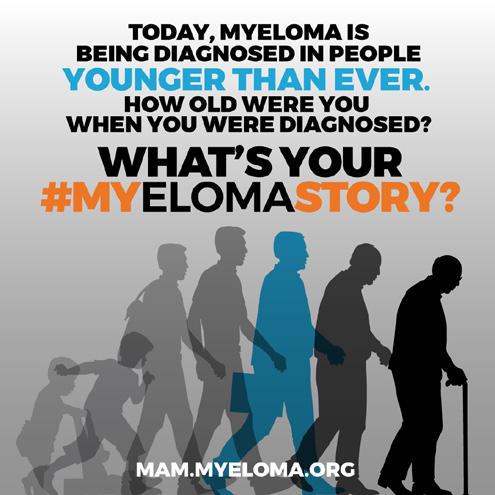
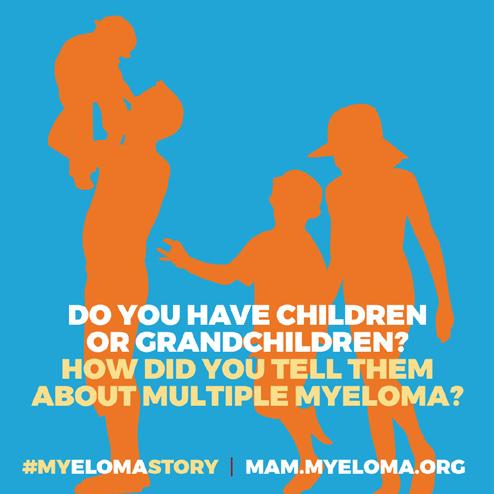
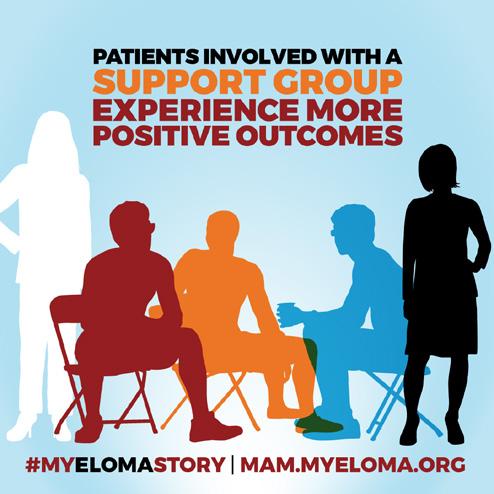
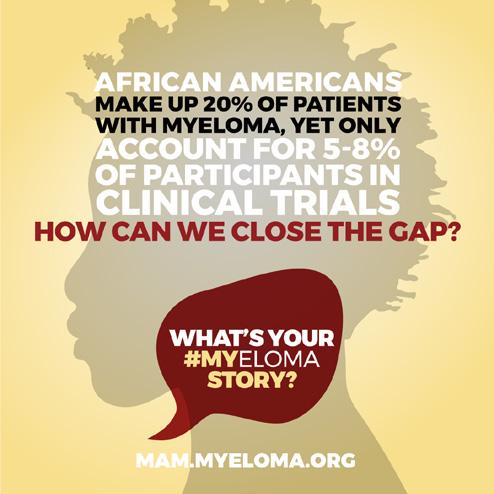
Thanks to the kind and generous contributions of individuals and groups, the IMF is delighted to announce that MAM 2023 made an enormous impact on the global myeloma community – patients, care partners, nurses, doctors, and advocates – by evoking empathy and fostering hope through the #MYelomaSTORY campaign.

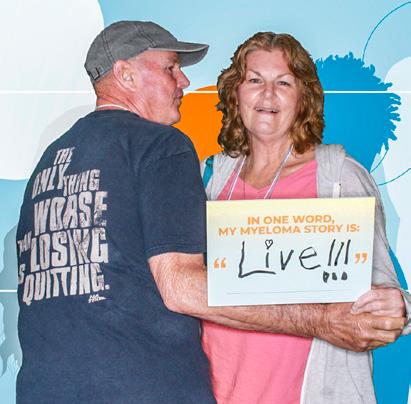
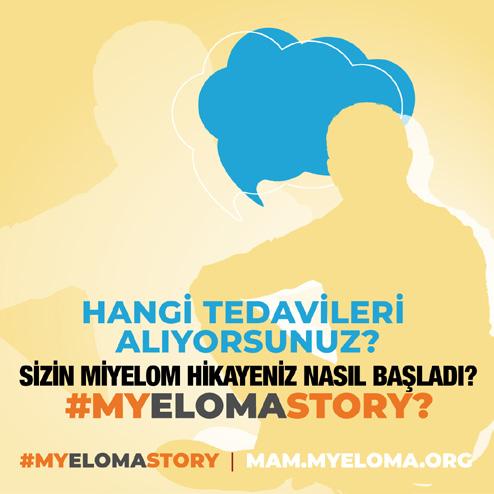
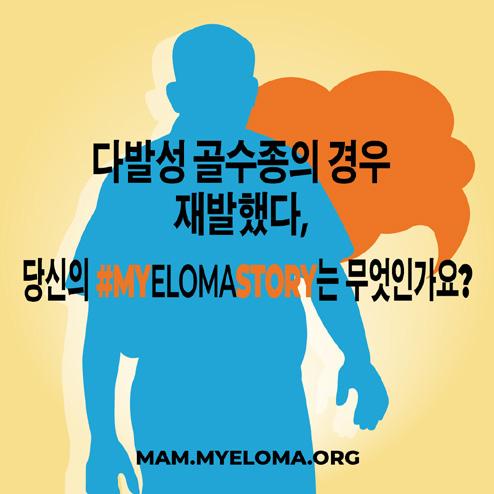
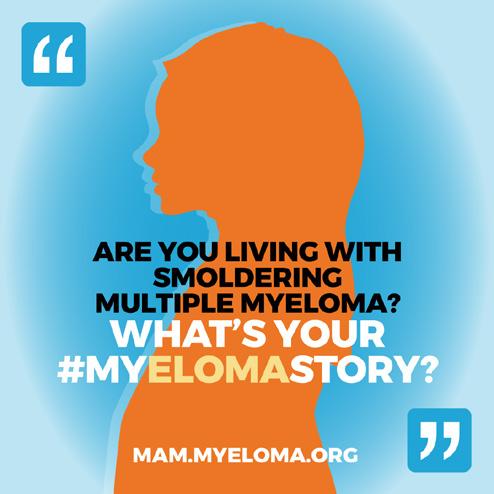
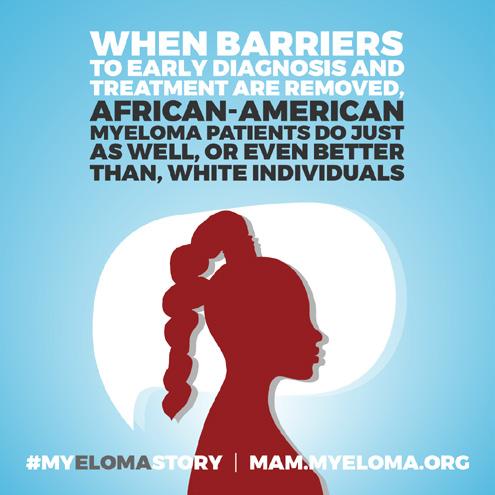

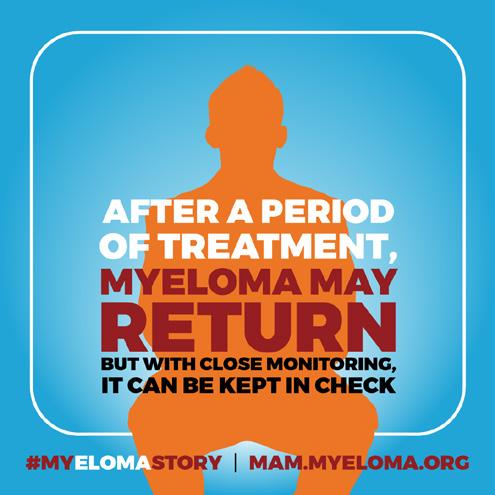
The IMF thanks our sponsors for supporting MAM 2023 and for actively engaging in the #MYelomaSTORY campaign: 2seventy bio, AbbVie, Amgen, Binding Site, Bristol Myers Squibb, GSK, Janssen Pharmaceutical Companies of Johnson & Johnson, Karyopharm Therapeutics, Pfizer, Regeneron, Sanofi, and Takeda Oncology. MT


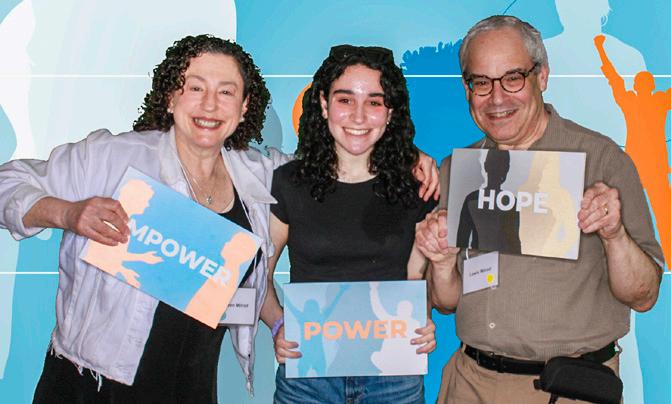
My father was diagnosed with myeloma in 2012. It is hard to describe the impact that his diagnosis had on our entire family. We were overwhelmed; we were changed forever. Thankfully, we quickly found the IMF website myeloma.org, and immersed ourselves in learning about myeloma, a disease we had never heard of before. The patient and care partner education provided by the IMF not only helped ease our fears, but it also restored some semblance of HOPE.
Gradually, our family found a new “normal,” but that was only the beginning of our myeloma journey. Both individually and as a family unit, we were asking ourselves how we could make a positive impact and be of service to the larger myeloma patient community. My recurring thought was, “How can I help my dad and also help other patients like him?” I’m not a doctor. I’m not a researcher. I felt so powerless and so uncertain about what I could do to help.
But there is a way for each of us to contribute toward the overall goal of all myeloma patients and their loved ones – a cure for myeloma. My opportunity to give back to the IMF, the organization that had been so helpful to our family since the very beginning of our myeloma journey, came when I joined the IMF and its Advocacy team. I felt so overjoyed to be able to apply my skill set in a way that benefits the myeloma community!
The IMF Advocacy program trains and supports concerned individuals to advocate on health issues that affect the myeloma community. Working at both the U.S. state and federal levels, the IMF supports legislation that betters the lives of patients with myeloma nationwide. We fight for patients’ rights to have access to affordable myeloma treatments, and we help equip the patient and care partner community with the tools to advocate on their own behalf.
Becoming an effective advocate is much easier than most people imagine, and it is extremely important to the IMF that you
and your family members join our advocacy efforts to advance policy priorities that support the myeloma community. It can be as simple as sharing your story with the decision-makers in your state or on Capitol Hill in Washington, DC. The policy decisions being made have an impact on nearly every facet of care that myeloma patients receive, including access to therapies and clinical trials, what Medicare and private insurers will cover, drug prices, the levels of myeloma research funding levels, and more.
The IMF’s Myeloma ACTION Team is here to help train you through webinars, virtual meetings, and written materials. You will gain a deeper understanding of the current legislative issues that have the biggest impact on the myeloma community. Decision-makers want to hear from you, and the IMF can train you to communicate your story and explain the myeloma community’s advocacy priorities to your elected officials. You may have opportunities to raise your voice via the media and by responding to “Action alerts” from the IMF.
As a member of the Myeloma ACTION Team, you can make a positive impact on important policy issues, and advocating for yourself or for a loved one is so empowering. There are many opportunities for you to be involved, and the IMF will support you with the tools and information you need to be an effective advocate. Your voices matter! MT
To learn more about the IMF’s advocacy activities or to contact your legislators directly, visit advocacy.myeloma.org .
To subscribe to the IMF Advocacy Newsletter, visit subscribe.myeloma.org . To learn more about how you can help, contact us at advocacy@myeloma.org We welcome your engagement, questions, and ideas.
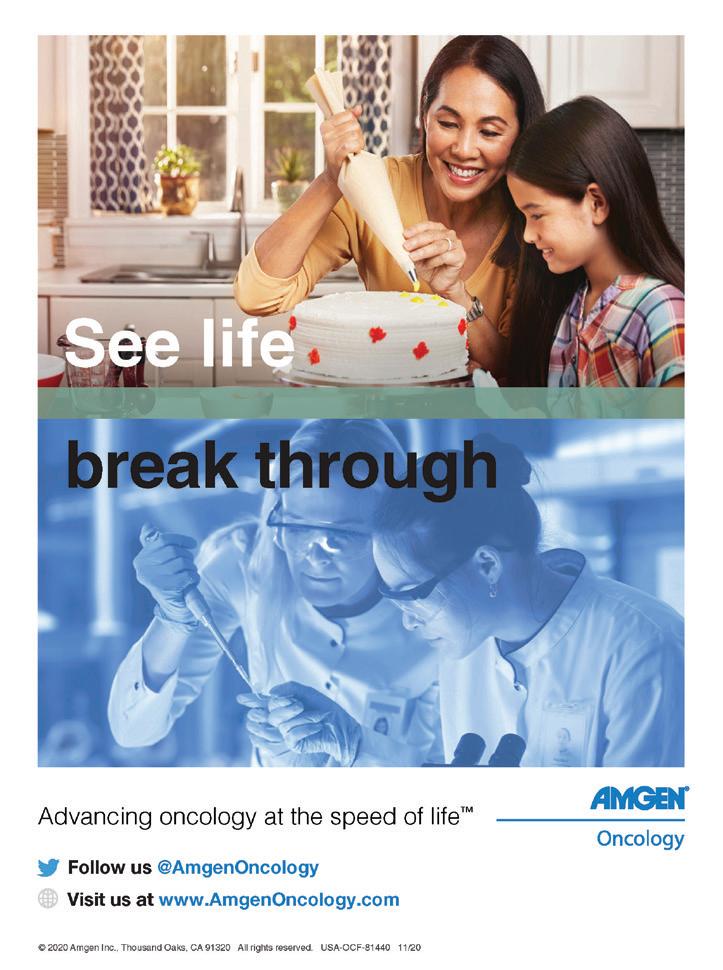
Patients often ask, “How can I thank my medical team?” The IMF understands how important your myeloma medical team is to your journey. The IMF collaborates with the world’s leading myeloma experts who are getting closer to a cure every day. Your support as our Partner in Progress plays a vital part in finding a cure. Please contact Lynn Green at lgreen@myeloma.org
You can raise myeloma awareness and much-needed funding for the four Principles of the IMF with support from our PEER-to-PEER team. A fundraiser can be built from anything you love to do, or you can join a P2P event already in progress. Join us and be a part of the miracle Please contact Ilana Kenville at ikenville@myeloma.org
You can secure your legacy for the people you love while supporting the IMF’s mission to find a cure for myeloma. FreeWill, an intuitive online service, helps you create a legally valid will free-of-charge in under 25 minutes. Please contact Lynn Green at lgreen@myeloma.org

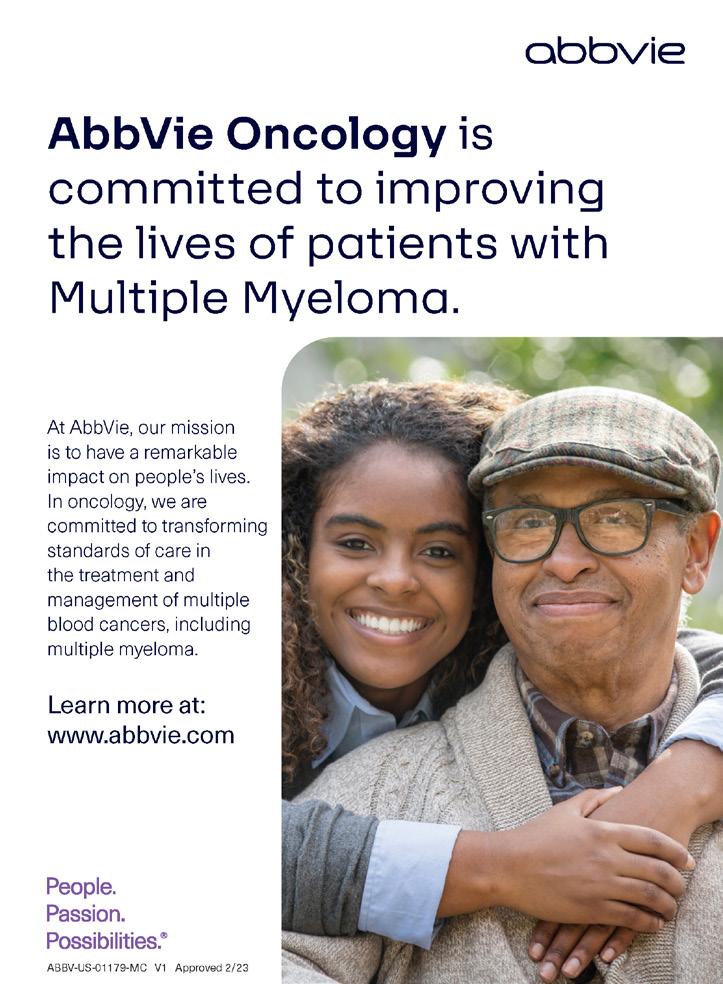
Help us cultivate the future by joining our Hope Society. Starting at just $10, your monthly gift will make a difference year-round in supporting IMF programs and services. Please contact Jonathan Weitz at jweitz@myeloma.org
The IMF welcomes donor-advised gifts of stocks, securities, and IRA distributions. These are the best ways to receive additional tax benefits through your philanthropic giving. Please contact IMF Chief Financial Officer Jennifer Scarne at jscarne@myeloma.org myeloma.org | 1-800-452-2873 | TheIMF@myeloma.org
Find us at facebook.com/myeloma | Instagram @imfmyeloma | Twitter @IMFMyeloma
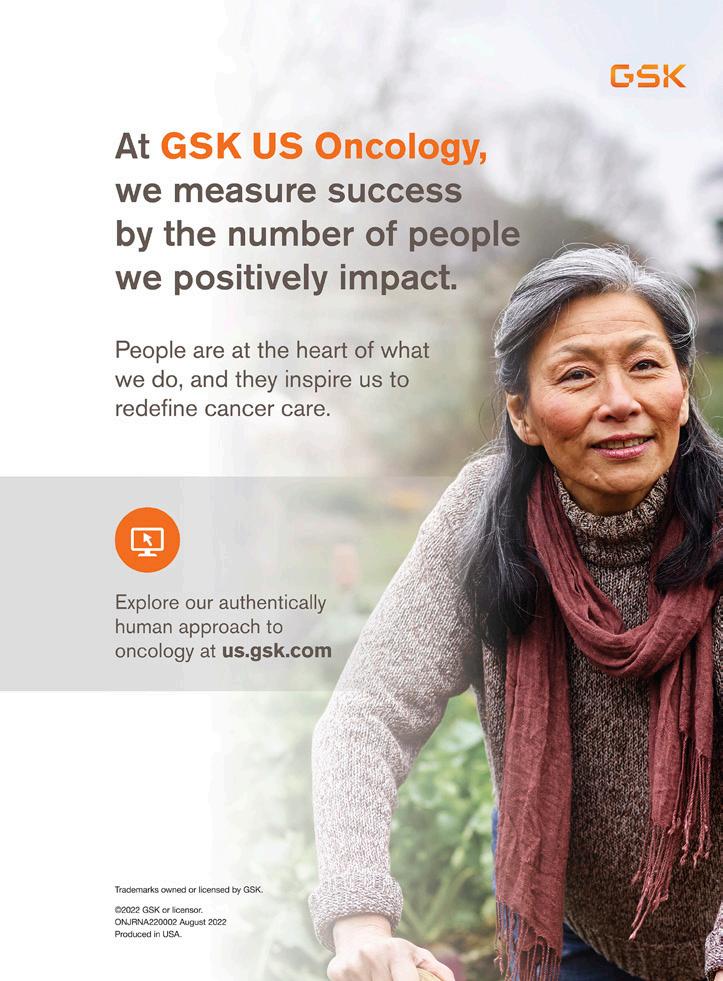
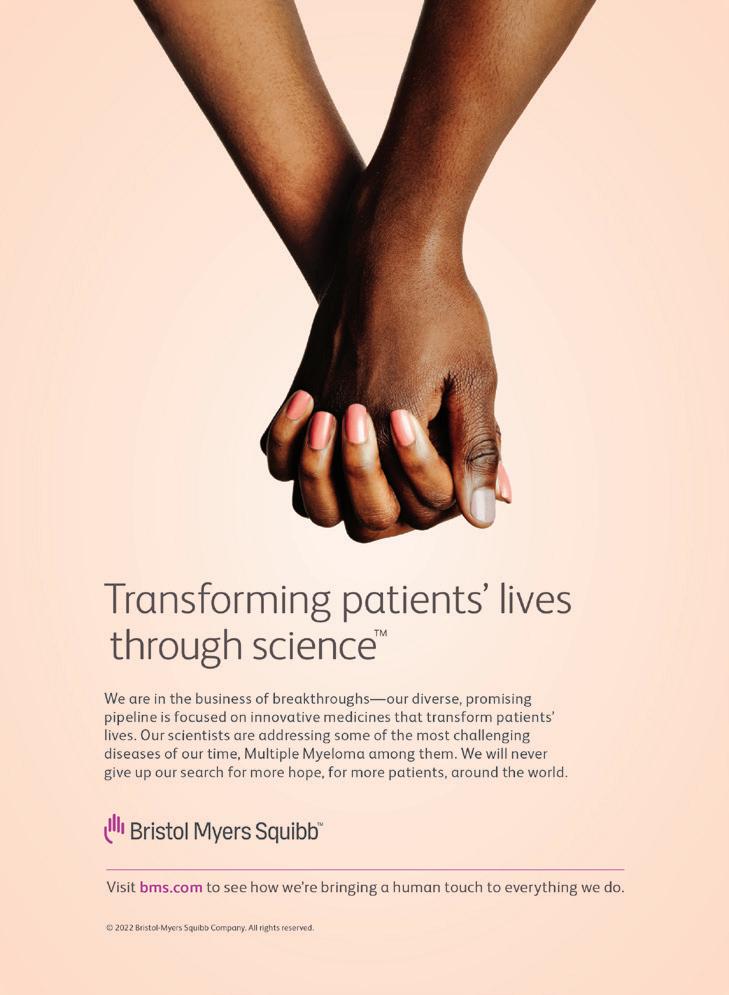
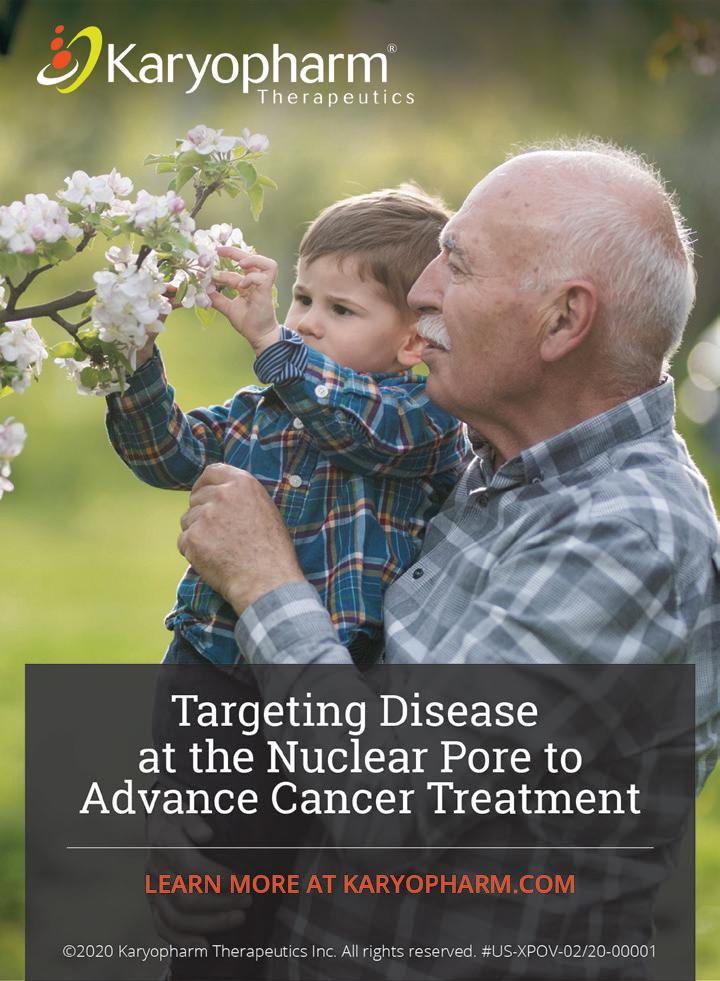
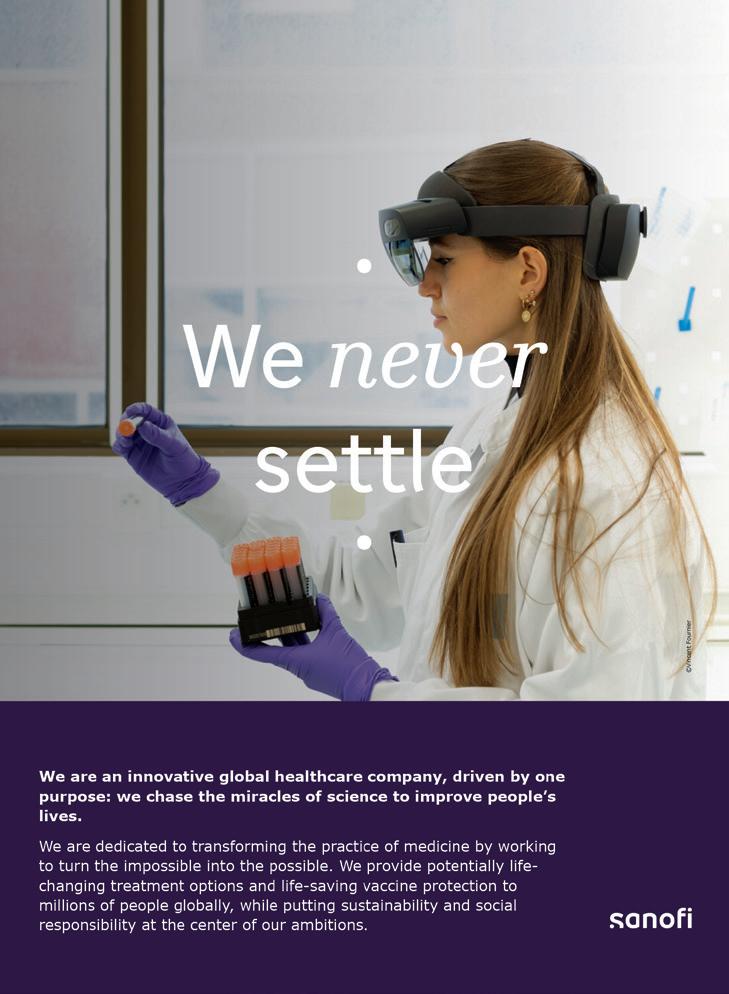
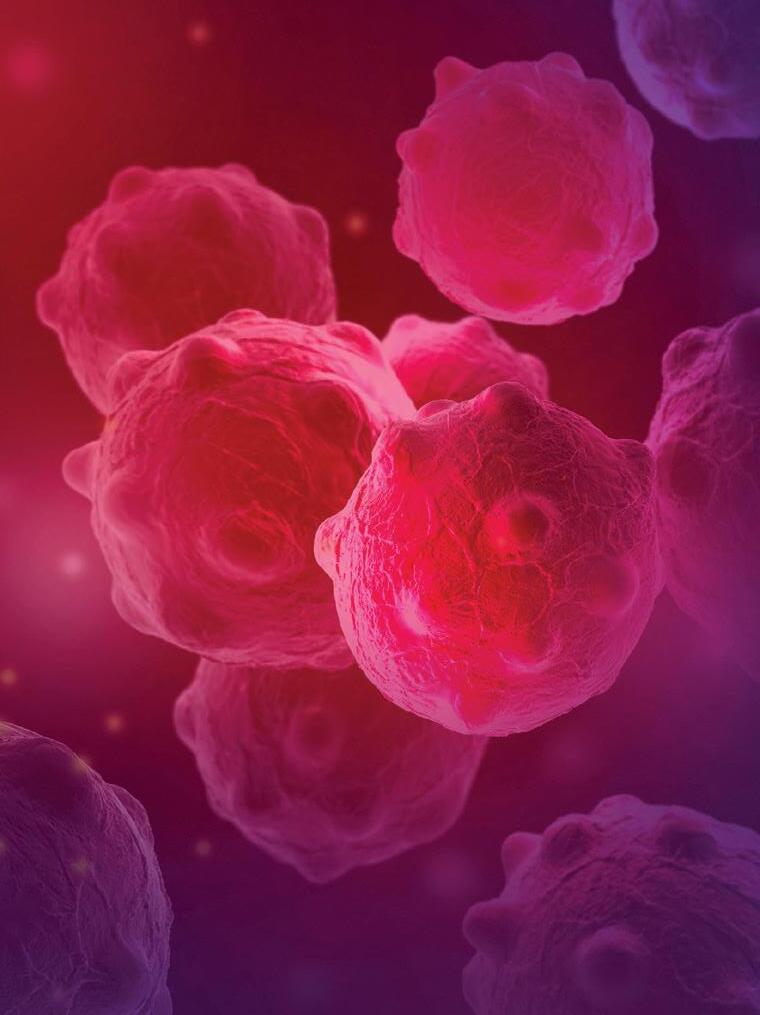
Founder Brian D. Novis
Founder
Susie Durie
Board of Directors
Chairman Dr. Brian G.M. Durie
Christine Battistini
Yelak Biru
Prof. Dr. Mario Boccadoro
Loraine Boyle
Susie Durie
Martine Elias
George T. Hayum
Jason Katz
Benson Klein
Andrew Kuzneski, III
Dr. Robert A. Kyle
Prof. Dr. Heinz Ludwig
Dr. Edith Mitchell
Charles Newman
Dr. S. Vincent Rajkumar
Matthew Robinson
E. Michael D. Scott
IMF Executive Team
Yelak Biru
President & Chief Executive Officer
Dr. Brian G.M. Durie
Chief Scientific Officer
Jennifer Scarne
Chief Financial Officer
Diane Moran
Senior Vice President, Strategic Planning
Daniel Navid
Senior Vice President, Global Affairs
Lisa Paik
Executive Vice President, Medical Affairs
Betty Arevalo
Manager, Inventory Control
Nancy Bruno
Regional Director, Support Groups
Sarah Chambliss
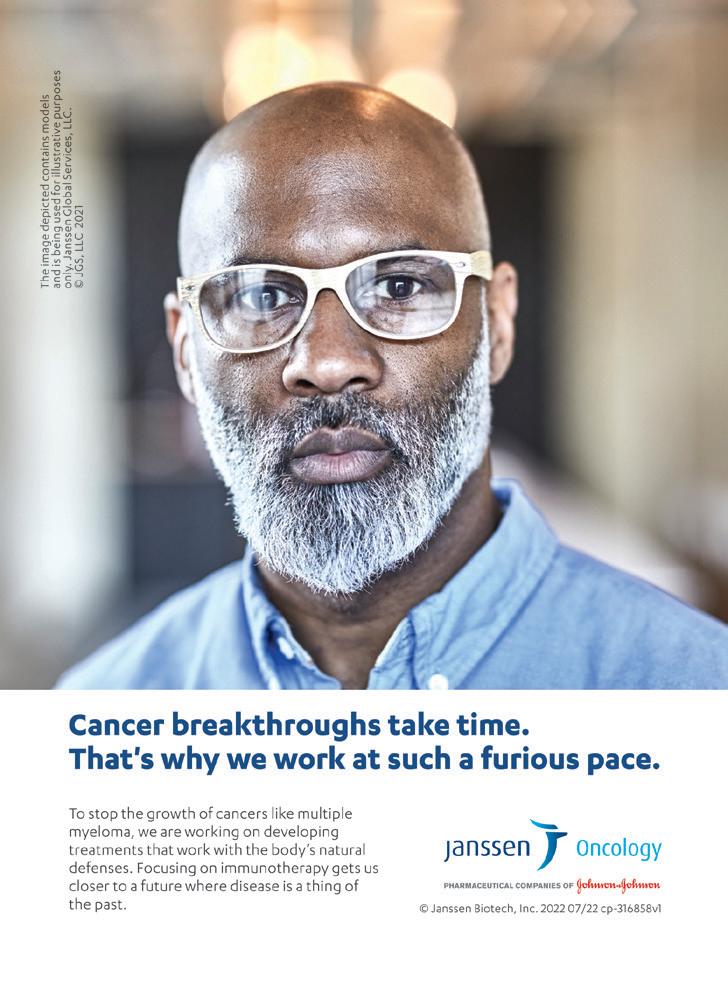
Dr. Joseph R. Mikhael
Chief Medical Officer
Lynn K. Green, Ed.D.
Senior Vice President, Philanthropy
Mimi Choon-Quinones, PhD, MBA
Senior VP, Global Advocacy, Access, Policy & Research
Peter Anton
Vice President, Marketing
Robin Tuohy
Vice President, Support Groups
IMF Staff
Phil Lange
Accountant
Karla Lemus
Donor Relations Specialist
Program Manager, Medical Meetings
Kelly Cox
Director, Support Groups and Sr Dir, Regional Community Workshops
Danielle Doheny
Director, Public Policy & Advocacy
Susie Durie
Director, Global Patient Initiatives
Serdar Erdoğan
Director, GMAN and European & Middle Eastern Patient Programs
Jon Fitzpatrick
Technology & Coordination, Support Groups
Sherrie Guerrero
Director, Human Resources
Paul Hewitt
Coordinator, InfoLine
Kevin Huynh Web Specialist
Katie Ives
Administrative Assistant, Meetings
Marya Kazakova
Editor-in-Chief, Publications
Ilana Kenville
Associate Director, Distinguished Events
Missy Klepetar Coordinator, InfoLine
Sapna Kumar Marketing Strategist
Jason London Manager, Marketing & Communications
Jim Needham
Publication Design
Meghan O’Connor
Manager, Meetings & Programs
Selma Plascencia
Director, Operations
Annabel Reardon
Sr Director, Program Operations & Chief of Staff
Joy Riznikove
Database Analyst
Miko Santos Web Producer
Narmeen Shammami
Sr Research Project Coordinator
Sarah Solomon
Donor Relations
Brando Sordoni
Accounting & Distribution
Rafi Stephan
Assistant to the President & Chief Executive Officer
Daria Tabota Coordinator, Marketing & Communications
Deborah Verla
Coordinator, InfoLine
Jonathan Weitz
Donor Relations
Haleigh Wolfe Project Manager
SATURDAY, JUNE 17, 2023 10 AM – 12:30 PM ET Riverside Church 490 Riverside Drive | NYC Lunch will be provided free of charge.

M-Power is the nationwide initiative by the IMF to improve the short-term and long-term outcomes of patients with myeloma in Black communities.
For more information about this free educational program, visit us at mpower.myeloma.org
